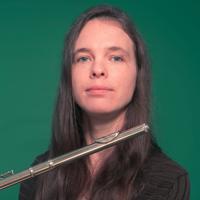Working with Neurodiversity: The Voice in Neurodiversity-Affirmative Music Therapy and other Music-based Work
Friday 31st January 2025, 12:00 PM - 2:00 PM (London Time)
The Neurodiversity Paradigm challenges the concept of autism, and related neurological differences such as ADHD and dyspraxia, as disorders or deficits, instead viewing neurodiversity (neurological diversity) as a natural and normal part of human diversity. Under the neurodiversity paradigm, neurotype (e.g. neurotypical, autistic etc.) is considered as an aspect of identity, in the same way as gender or sexuality, and neurodivergent forms of behaviour, communication and culture are valued in the same way as neurotypical forms of behaviour, communication and culture. In recent years, the music therapy profession has begun to consider the application of the neurodiversity paradigm to music therapy practice, in particular In relation to autism, and an increasing amount of literature embracing this perspective has been published.
This lecture, delivered from a lived experience perspective, will begin with an explanation of the key concepts around neurodiversity, the neurodiversity paradigm, and some prominent neurodiversity-informed theories, including a brief exploration of autistic communication and culture. We will look at ways to work musically from a neurodiversity-affirmative perspective, whether therapeutically or within other forms of music-based work or teaching practice. Particular consideration will be given to the use of the voice, both in terms of responding to the neurodivergent individual’s particular ways of using language, song and vocal sounds, and in terms of using one’s own voice (whether you identify as neurotypical or neurodivergent), and other forms of music, to communicate respectfully and effectively with neurodivergent people. I will speak about my own music therapy work with autistic people, which takes a collaborative approach with the client as much as possible, giving examples of how I use my voice and other forms of musical response in my therapeutic work.
Hilary Davies
Hilary Davies is a Health and Care Professions Council-registered Music Therapist, specialising in music therapy with autistic people.

Attend this course for as little as £22 as part of the Voice Professional Training CPD Award Scheme.
Learn MoreSorry, this is an archived short course...
We have plenty of upcoming short courses coming soon. See details of some of them below or look at the full list of short courses.

Thursday 19th February 2026
1:00 PM - 2:30 PM
Thursday 26th February 2026
1:00 PM - 2:30 PM
(London Time)
Performing Pain: Vocal Health in Emotional Roles!

Louisa Morgan
How connected are acted emotions to our real-life emotions? Are they expressed differently? Do they feel different in the body? This 2-part course with Louisa Morgan looks at the potential impact of acted emotion on vocal health, why we should consider it as voice practitioners, and how to care for our performers needing to work with it.


Tuesday 24th February 2026
5:00 PM - 7:00 PM
(London Time)
Incorporating CBT principles within vocal health and voice care

Dr Luke Aldridge-Waddon
Join Dr Luke Waddon as he introduces the principles and techniques within cognitive-behavioural therapy (CBT) in relation to the voice and voice care. He will discuss psychological factors relevant to the development and maintenance of voice disorders and how these might be approached from a cognitive-behavioural perspective. He will describe theoretical concepts and therapeutic components often used within CBT and consider how these might be applied when working with voice users.


Tuesday 3rd March 2026
5:00 PM - 7:00 PM
(London Time)
Sex differences in VOICE!

Dr Richard Lissemore
This two-hour workshop, led by performer, articulatory phoneticist, and voice physiologist, Dr. Richard Lissemore, will examine in detail the role that biological sex plays in the perception and pedagogy of singing voices. We'll consider how parameters such as anatomy, physiology, articulation, resonance, and radiated acoustics influence the perceptions and pedagogical decision-making of singing teachers.
